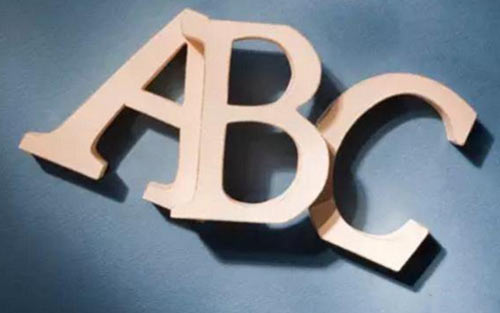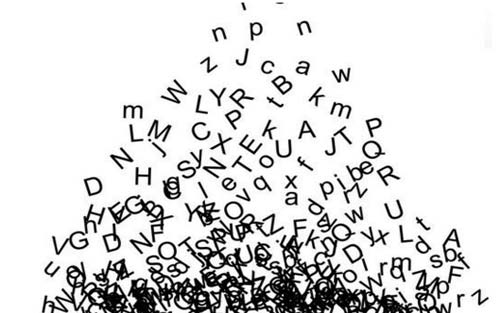谓语动词have表示“有”,有两种形式:have和has,前者用于第一人称(I, we),第二人称(you)和第三人称复数(they),后者用于第三人称单数(he, she, it)或单数名词。下面是英语动词have用法大全,大家一起来看看吧!
英语动词have用法大全:
1) 谓语动词have表示“有”,有两种形式:have和has,前者用于第一人称(I, we),第二人称(you)和第三人称复数(they),后者用于第三人称单数(he, she, it)或单数名词。
I have an apple and he has two bananas. 我有一个苹果,他有两个香蕉。
You have a new English teacher. 你们有了一个新的英语老师。
It has two big eyes. 它有一双大眼睛。
Julie and Jack have a nice car. 朱莉和杰克有一辆好看的车。

2) have/has句型与there be句型的比较:两者都表示“有”,但用法不同。前者表示所属关系,即表示“某人或某物有什么”,而后者表示存在,表示“某地有什么”。
They have some new books. 他们有一些新书。
There are some new books on their desks. 他们桌子上有一些新书。
She has a lot of pretty skirts. 她有很多漂亮的裙子。
There are a lot of pretty skirts in the shop. 商店里有很多漂亮的裙子。
3) have/ has的否定句,一般要加助动词do/ does,再加not构成,即do not have (don’t have)/ does not have (doesn’t have)
. She does not have a sister. 她没有姐姐。
We don’t have any classes on Saturday. 我们星期六没有课。
Ann and I don’t have a big room. 我和安没有一个大房间。
4) 一般疑问句由“助动词Do/ Does + 主语 + have + 宾语”构成,回答用Yes, … do/ does.或者No, … don’t/ doesn’t.
--Do you have a big house? 他们的房子大吗?
--No, they don’t. 不,他们的房子不大。
--Does he have an eraser? 他有橡皮吗?
--Yes, he does. 他有的。
5) 特殊疑问句由特殊疑问词 + 助动词do/ does + have (+状语)构成。
What do they have? 他们有什么?
What does he have? 他有什么?
How many telephones do they have? 他们有几部电话?
万能动词“have”用法:
有,带有(某些性质、特征),产生
The colour green has a restful effect .
绿色能产生一种静谧的氛围。
I don’t have that much money on me.
我身上没有那么多的钱。
The house has gas-fired central heating .
这所房子有燃气中央供暖系统。
吃,喝,吸(烟)
To have breakfast /lunch/dinner
吃早餐/午餐/晚餐
I had a cigarette while I was waiting .
当我在等待的时候,我吸了一支烟。
常见特殊用法
(与过去分词连用构成完成时)
If I hadn’t seen it with my own eyes I wouldn’t have believed it.
如若我不是亲眼看到的话,否则我是不会相信的。
“have+宾语+动词”结构归纳:
1. have+宾语+不定式(作定语)
该结构中的不定式用作定语修饰其前的名词。如:
(1) 表示“有……要……”。如:
I have a few letters to write. 我有几封信要写。
We have a lot of work to do. 我们有许多工作要做。
(2) 表示“有……的……”。如:
Birds have the instinct to learn to fly. 鸟有飞的本能。
She didn’t have the courage to refuse. 她没有勇气拒绝(即没有拒绝的勇气)。

2. have+宾语+动词原形(作宾语补足语)
(1) 表示叫(使、让)某人做某事,其中的 have 是使役动词。如:
He had his son clean the car. 他叫他的儿子擦车。
I’ll have Hudson show you to your room. 我让哈德逊带你去看你的房间。
(2) 用于否定式,表示“不能让”或“从未有人”,通常与 won’t 连用。如:
I won’t have you tell me what to do. 我不能让你对我做的事指手划脚。
3. have+宾语+现在分词(作宾语补足语)
(1) 表示使(让)某人或某物一直不停地做某事。如:
I have the car waiting. 我让汽车等着。
He had us laughing all through the meal. 他弄得我们整个吃饭时间都欢笑不止。
(2) 表示客观上有某情况在进行或持续。如:
We have people standing on our steps all day. 我们的台阶上整天站着人。
I looked up and found we had water dripping through the ceiling. 我抬头一看,发现有水渗过天花板滴下来。
(3) 表示使(让)某人开始做起某事来。如:
He soon had them all laughing. 他很快逗得大家都笑了。
I have them all talking to each other. 我使得他们全都相互交谈起来。
have to的用法归纳:
1. 表示被迫做某事
指因客观原因而被迫做某事。如:
The police had to employ force to break up the crowd. 警察不得不用武力驱散人群。
We’ll have to chance meeting an enemy patrol. 我们不得不冒着可能遇上敌人巡逻兵的危险。
He’s getting so fat that his trousers have to be let out round the waist. 他越来越胖,裤腰都得放宽了。
We have had to postpone the meeting, due to the Chairwoman’s illness. 由于女主席生病了,我们不得不推迟开会。
2. 表示重要性和必要性
指做某事很重要或很有必要。如:
Poems have to be translated quite freely. 诗歌只能根据意思来灵活翻译。
The railway lines have to be constantly maintained. 铁路必须经常得到保养。
Obviously, I’ll have to think about your offer carefully. 当然,我得仔细考虑一下你的报价。
3. 表示推测
用于表示肯定推测,与must用法相似。如:
This has to be a mistake. 这肯定是弄错了。
There has to be a solution. 一定会有解决的办法。
This has to be part of the original manuscript. 这一定是原稿的一部分。
4. 表示劝告或建议
表示劝告或建议某人做某事,相当于suggest sb’s doing sth。如:
We shall have to mind what we say. 我们说话得要注意。
You'll have to come and meet my wife some time. 你不妨什么来我家见见我太太。
That’s the point, mate. You have to ring her right now if you really want to see her. 对啦,哥儿们,就是这个意思,你要是真的想见她,那你就马上给她打电话。
与“英语动词have用法大全”相关文章
赞(0)
12
12
分享:

